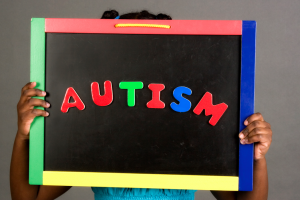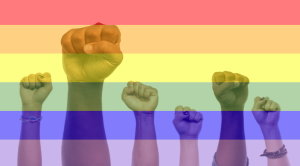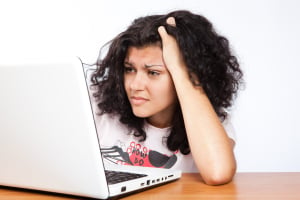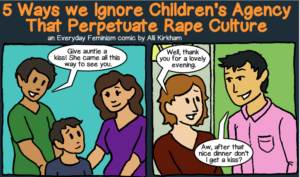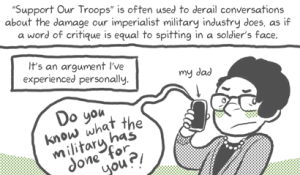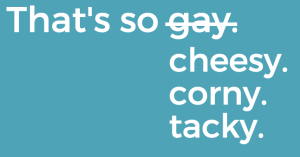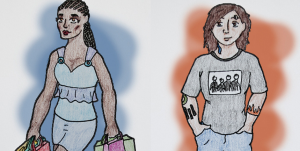As someone who does a great deal of digital activism and online writing, I’ve been called a “keyboard warrior” more times than I could count.
I’m commonly told that I should stop talking about oppression and “do something” about it.
There is this common misconception that all online activism is “slacktivism,” that it’s not “real” activism, that it’s all useless, and that it’s not as important or effective as offline activism.
But this is simply not the case.
In fact, those arguments are problematic because they doesn’t recognize that 1) talking and doing are not mutually exclusive and 2) talking online is educating people, and thus, doing something – something extremely important, I might add.
I would not be where I am today if it weren’t for online activism. It’s given me a community, enabled me to educate myself, and enhanced the offline activism that I’ve done.
This is not to say online activism is perfect.
There are many limitations to online activism, and there are plenty things we need to work on to make it more accessible for marginalized people.
I’m also not insinuating that online activism is better than offline activism. Both kinds of activism are necessary, useful and important. Ideally, the two kinds of activism should co-exist without being disparaged or hierarchized.
And yes, some forms of online activism can do more harm than good. Sometimes, online activism can perpetuate oppressive ideas – consider how certain online breast cancer awareness campaigns can be cissexist, misogynistic, and generally ineffective.
As with all forms of activism, it’s important that we think about it critically, so that we can try to make it better.
But online activism is definitely not inherently useless – on the contrary, there are many reasons why online activism can be an effective way to fight oppression.
Let’s take a look at some of the reasons why we should stop dismissing online activism.
1. Online Activism Can Be More Accessible to People with Disabilities
In many ways, online activism can be more accessible for people with various challenges, illnesses, and disabilities.
As someone with anxiety, I’ve previously struggled with speaking in groups. Online activism enabled me to discuss my experiences without feeling as anxious.
Eventually, I found that online activism helped me gain enough confidence to speak and engage with others in person.
Online activism can also be more accessible to chronically (and temporarily) sick and disabled people. As much as we activist may be working towards creating more accessible protest spaces and organizing gatherings, we still have a long way to go.
We still struggle with having ASL interpreters for the Deaf community, with establishing protest routes that are safe and viable for people who use mobility devices and with ensuring to show up scent free so our friends with MSC can rally as well.
As Ellen Clifford, of the campaign group Disabled People Against Cuts (DPAC) stated,
“Disabled people have taken social media and made it into their own medium, where they can have a voice on equal terms with their non-disabled counterparts, something not often afforded by society as a whole.”
Of course, there are a number of people with disabilities, illnesses and challenges that don’t find the internet to be any more accessible. But for those who do, online activism can help them form a huge support network and an outlet of expression.
Additionally, online activism can be more accessible to people in rural areas, people without transportation, and people who are often busy with work or other activities.
If we dismiss online activism, we dismiss the input and work of people who have difficulty accessing most forms of activism.
This means we risk invisibilizing them and losing their valuable perspectives.
In order to have a movement that is truly inclusive and intersectional, it’s vital that we embrace anything that makes it more accessible – including online activism.
2. Online Activism Can Be Used to Build Community
The Internet can be a very difficult, stressful place. It can also be a place for community, comfort, validation, and love.
As someone who has been sexually assaulted, I struggled with feeling lonely, isolated, and worthless for quite some time.
Thanks to the Internet, I was able to connect with a group of amazing online activists who helped me to feel validated and loved.
This community supported me to begin and maintain the process of healing after my assault.
Eventually, I plucked up the courage to tell my family and friends about my rape. I am certain that I would not be where I am today if it weren’t for those so-called “keyboard warriors.”
Come to think of it, most of my closest friends are people I met or got to know through online social justice activism.
I met my current partner on a Facebook thread where they were defending the feminist merits of Nicki Minaj’s “Anaconda.” One of my closest friends is someone I met on Twitter.
The Internet enables people all over the world to connect with, and mutually support, one another. Those relationships can incredibly valuable, especially to marginalized communities.
3. Online Activism Can Be Used to Educate
Because the Internet is a place where people exchange information, it’s a great medium for education – especially around social justice issues.
If it weren’t for the Internet, I definitely wouldn’t be as sensitive to issues around race.
The Internet has provided me with plenty of accessible material that has enabled me to educate myself and – I hope – push back against oppression.
I’ve also seen many other people – including my classmates, friends and family – become more sensitive to social justice issues by educating themselves on the Internet. I don’t think I personally know anyone who hasn’t learnt something from the Internet, whether they used that education for harm or good.
Because online activism can be more accessible for people who are marginalized in various ways, it means we can access their perspectives easily.
This means that our education can be broadened and deepened through online activism.
The internet has enabled us to both give and receive content that offers insight into people’s lived experiences. This means that it’s now easier for us to educate and find education online.
4. Online Activism Can Help People Pool Resources
Connecting with people online can enable people to pool resources for the greater good.
Crowdfunding on platforms like GoFundMe and Indigogo have helped a great deal of individuals. They’ve also enabled people to fundraise for various activist efforts.
Online activism can also help people share and exchange their skills.
I’m a part of a community where people use their skills to help one another in exchange for help with things they struggle with.
I regularly proofread articles and help people manage social media accounts in exchange for help with graphic designing, writing transcripts, and creating videos.
Our online communities enable us to engage with a diverse group of people with different skills and areas of expertise.
We enhance our work and activism through using these valuable connections. This exchange of skills is also a beautiful way in which people can serve and help one another.
5. Online Activism Can Increase the Efficacy of Offline Activism
As I mentioned earlier, online activism should ideally co-exist with offline activism.
For example, I’m a part of the Gender Action Project, a student activist society at my university. We use our social media accounts on Facebook and Twitter to advertise our events, start online discussions, and draw attention to important issues.
I can guarantee you that fewer people would be aware of our offline events if it weren’t for our social media presence.
We’re certainly not the only ones. A range of people use social media to organize offline activism. Consider how Twitter is used to organize and publicize activism around #BlackLivesMatter.
The truth is that online activism can have a huge influence on the mainstream media and other institutions.
For example, feminist icon Ani DiFranco was recently criticized after scheduling a songwriting retreat at a former plantation. A great number of people called her out on this – and rightfully so – through social media. This eventually propelled her to cancel the retreat.
Earlier this year, in my own country, thousands of South African students demanded the removal of a statue of Cecil John Rhodes at the University of Cape Town. This was partially done through social media and the use of hashtags such as #RhodesMustFall.
When the statue was removed, we continued a movement that calls for radical, intersectional transformation in our country’s universities. We use social media to enhance our protests, publicize our activism, and connect with other students around the country.
***
These are just a few examples of the myriad of ways activists use social media and online activism to enhance offline activism. That said, there are a number of things we need to work on in order to make online activism less limited and exclusionary.
For example, we need to remember that online activism is only accessible as much as what the internet is accessible.
While Internet access increases year by year, quality Internet connections are still reserved mostly for those with class privilege. The quality and cost of internet access differs from country to country. While many people may have access to the internet, they aren’t all able to do bandwidth-intensive activities such as watch videos, create content, and conduct video calls.
Online activism, in its current state, is by no means perfect.
But this doesn’t mean it should be dismissed.
Dismissing all forms of online activism as “slacktivism” is a common, but deeply misguided approach.
In order to make our activism as effective and inclusive as possible, we need to recognize the power of the Internet and use it to its full potential.
[do_widget id=’text-101′]
Sian Ferguson is a Contributing Writer at Everyday Feminism and a queer, polyamorous, South African feminist who is currently studying towards a Bachelor of Arts majoring in English and Anthropology. Originally from Cape Town, she now studies at Rhodes University in Grahamstown, where she works as vice-chair of the Gender Action Project. She has been featured as a guest writer on websites such as Women24 and Foxy Box, while also writing for her personal blog. Follow her on Twitter @sianfergs. Read her articles here.
Search our 3000+ articles!
Read our articles about:
Our online racial justice training
Used by hundreds of universities, non-profits, and businesses.
Click to learn more









